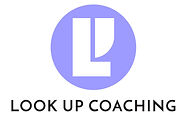
In today’s fast-paced world, businesses need leaders who can quickly adapt, learn, and unlearn. Self-development is the proactive path to enhancing our capabilities while shaping our futures. Yet, it’s surprising how many professionals don’t have a self-development practice, even though cultivating continuous learning positions us for long-term success.
Thankfully research shows that about 70% of leadership skills are developable. This means that anyone willing to identify areas for growth, practice regularly, and reflect can indeed build the skills they need to lead effectively.
However, some professionals still don’t invest in self-development. When I meet leadership coaching clients, I often see these three key barriers: urgency, inexperience, and hubris. People often say they don’t have time, but as their desire for growth increases, it becomes clear they may also lack the experience or self-awareness to build a self-development practice.
The great news is that those who seek leadership coaching are already ahead of the curve. They’re courageous enough to acknowledge they need help reaching the next level. In this post, we’ll explore the three common obstacles to self-development and share strategies and actions to overcome them.
Obstacle 1: Lack of Urgency — “I don’t have time for it”
Balancing self-development with daily responsibilities can feel overwhelming. The endless to-do lists may leave you feeling like you can’t possibly take on more. Sometimes, the sheer magnitude of personal growth feels exhausting before you even start.
Strategies to get started:
Set goals that focus on what matters most to you.
Assess how you’re currently spending your time. Does it align with your ambitions?
Seek advice from respected leaders on what to prioritize in your development.
Celebrate small wins to stay motivated.
Quick actions for your busy schedule:
Block out one hour each week for personal growth. Delegate or decline non-essential meetings if necessary, and protect this time fiercely.
Write one S.M.A.R.T. (Specific, Measurable, Attainable, Relevant, Time-bound) goal focused on your larger ambition.
Share your development focus with a manager, mentor, or coach, and ask for accountability.
Take a moment each week to acknowledge and celebrate your progress, however small.
Obstacle 2: Inexperience — “I don’t know I need it”
Self-development can be intimidating, especially if you’re not sure where to start. Inexperience doesn’t just apply to early-career professionals. Some seasoned leaders mistakenly believe their company is responsible for their growth, or they assume their past achievements mean they have no gaps to address. Others may not realize what skills they need to reach the next level.
Strategies to get started:
Explore learning and development opportunities both inside and outside your organization.
Communicate your goals and seek advice on how to move closer to achieving them.
Be curious about how others you admire have grown their careers.
Stay open to new experiences and perspectives.
Immediate actions to gain experience:
Read more, especially educational non-fiction.
Review job postings or educational programs to see what skills and experiences are in demand.
Network with others, ask insightful questions, and listen actively.
Reflect on what you learn from people you respect and admire.
Obstacle 3: Lack of Self-Awareness — “I don’t think I need it”
Self-awareness is the foundation of growth, but it’s often overlooked due to misconceptions or fear. There are two types of self-awareness: internal (understanding yourself) and external (understanding how others perceive you). Professionals lacking internal self-awareness may not recognize their weaknesses, feel unmotivated to address strengths they believe are “good enough,” or fear the unknown that comes with goal setting. On the flip side, a lack of external self-awareness may lead to defensiveness, fear of judgment, or concerns about being perceived as self-absorbed for focusing on growth.
Strategies to get started:
Take stock of your strengths and weaknesses, and how they affect your reputation.
Clarify your values and long-term goals so you know what you're working towards.
Seek critical feedback from others about how you come across.
Connect with people in roles you aspire to and learn from their journey.
Starter activities to increase self-awareness:
Review past performance reviews and feedback to create a current inventory of strengths and weaknesses.
Journal or meditate to clarify your priorities and the legacy you want to leave.
Find a mentor who can provide insights and perspectives on your growth.
Consider a 360° feedback assessment and work with a coach to build a personalized development plan.
Embrace Your Journey of Growth
Committing to self-development takes courage, perseverance, and a strategic approach. By overcoming common barriers—urgency, inexperience, and hubris—you can unlock your potential and achieve meaningful growth. Embrace challenges as opportunities to learn and empower yourself to create a future rich with continuous improvement and achievement.
Challenge yourself, explore your limits, and discover what’s possible for you.
As a leadership coach, I coach growth-minded professionals to lead well, get recognized, and thrive.
%20copy.jpg)
Comments